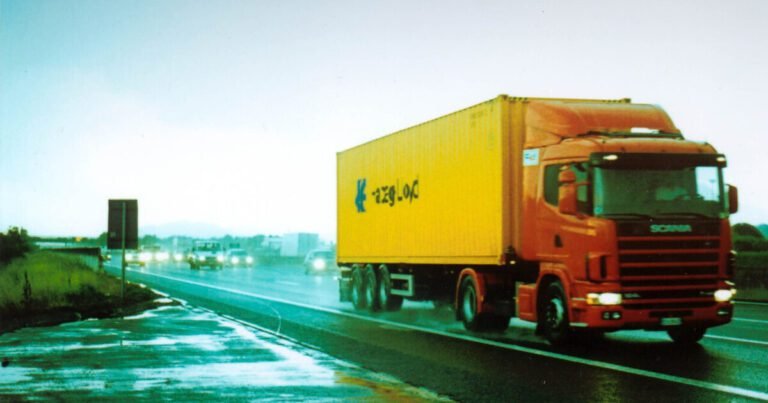Are you interested in this type of news?
Receive it directly to your inbox. Delivered once a week.
Truck makers are under investigation by the European Commission for running a cartel over the same period covered by the ICCT study. The study found that the fuel efficiency of heavy vehicles, which account for a third of EU CO2 emissions but only a small fraction of vehicles on the road, remained virtually unchanged between 2002 and 2014.
The International Transportation Safety Board also said that new fuel economy standards in the United States mean that its heavy-duty vehicles will outpace their European counterparts in the near future. Meanwhile, stagnant fuel consumption in Europe has coincided with a trend toward heavier vehicles and larger engines.
“Study after study shows that trucks are a real climate problem in Europe,” said William Todts, freight director at T&E. “Demand is growing, efficiency is stagnant and therefore truck emissions are increasing. After ten years of no progress and no significant cartel action, it is clear that a voluntary approach will not work.”
Truck emissions in Europe rose by 36% between 1990 and 2010, despite the economic crisis of 2008, due to higher mileage and fuel consumption of more than 30 litres per 100 kilometres on average. CO2 emissions are directly linked to the fuel economy of internal combustion vehicles, with more fuel-efficient vehicles emitting fewer greenhouse gases.
The IPCC has also recommended introducing fuel efficiency standards or CO2 limits for heavy vehicles in Europe to cut emissions, as the European Automobile Federation has done and following the US example for trucks. In June, the US Environmental Protection Agency proposed a new 24% target for improving fuel economy for trucks by 2027, in addition to limits introduced in 2011. Four EU countries – Belgium, the Netherlands, Slovenia and the UK – have told the European Commission that imposing limits on CO2 emissions from trucks is necessary if the EU is to meet its 2030 climate targets.
“The Commission’s lack of progress on CO2 emissions from trucks is astonishing,” added William Todts. “A decade after EU leaders first called for a strategy to reduce CO2 emissions from trucks, we still have not decided how we will measure CO2 emissions from trucks.”
Representatives of European truck manufacturers point to internal studies that they claim show a 60% reduction in fuel consumption per ton of freight transported since 1965, but an analysis by the International Fuel Efficiency Council suggests that progress in fuel efficiency has stalled for at least 10 years.
The Commission and EU truck manufacturers have been working together since 2010 to conduct tests to measure the fuel consumption of trucks. The tests are based on a software simulation tool called VECTO, which will gradually become mandatory for new trucks from 2018.
European manufacturers still hold a leading position in the global truck market, accounting for more than 40% of total global production.





